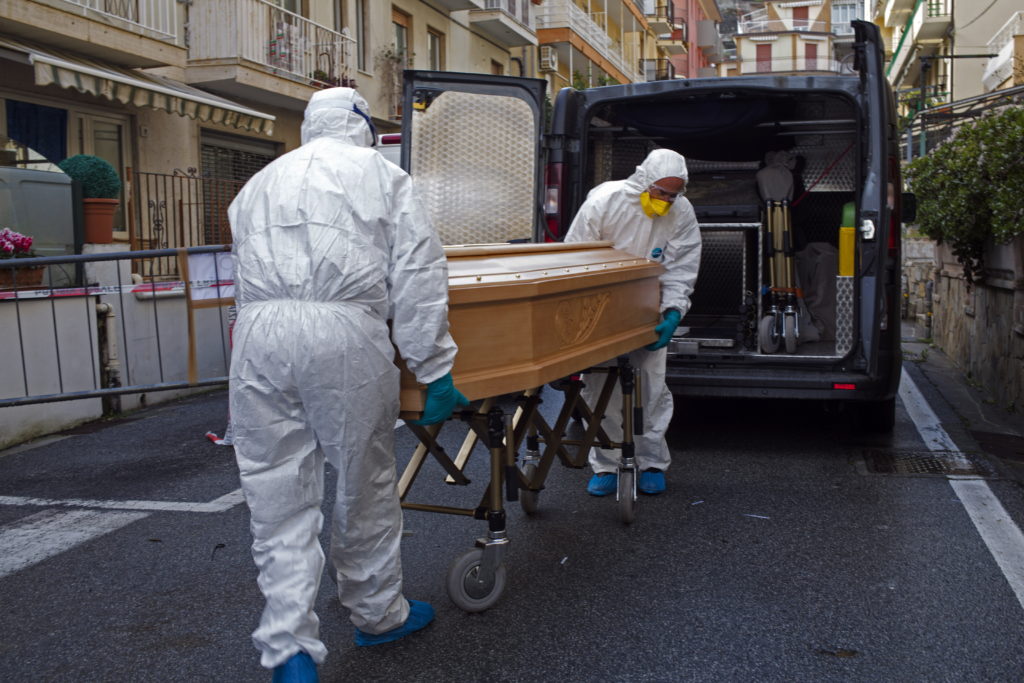“We’re right in the middle of the first wave globally,” said Dr. Mike Ryan, a World Health Organization executive director.
By Associated Press
The risks of reigniting coronavirus outbreaks are complicating efforts to fend off further misery for the many millions who have lost jobs, with a top health expert warning that the world is still in the midst of a “first wave” of the pandemic.
“Right now, we’re not in the second wave. We’re right in the middle of the first wave globally,” said Dr. Mike Ryan, a World Health Organization executive director.
“We’re still very much in a phase where the disease is actually on the way up,” Ryan told reporters, pointing to South America, South Asia and other areas where the number of infections is still on the rise.
A U.S. travel ban was due to take effect Tuesday for foreigners coming from Brazil, where the virus is raging through communities with no signs of abating. The ban, originally to take effect Thursday, was moved up. It does not apply to U.S. citizens.
Despite hopes that the so-called “first wave” of the pandemic may be waning, Ryan, the WHO official, warned that future “spikes” of outbreaks may mean the first wave is not over.
With infections surging in South America, the WHO warned Brazil’s leaders against reopening its economy before it can perform enough testing to control the spread of the pandemic.
“Intense” transmission rates mean Brazil should retain some stay-at-home measures despite the economic hardships, Ryan told reporters.
“In these kind of circumstances, there may be no alternative,” he said. “You must continue to do everything you can.”
Tests by a U.S. biotechnology company, Novavax, have begun in Australia with hopes of releasing a proven vaccine this year. A Novavax executive said 131 volunteers were getting injections in the first phase of the trial to test the vaccine’s safety and effectiveness.
Novovax expects the results of the Australian trial to be known in July.
About a dozen experimental vaccines are in early stages of testing or poised to start, and it’s not clear whether any will prove safe and effective. But they use different methods and technologies, increasing the odds that one might succeed.
“We are in parallel making doses, making vaccine in anticipation that we’ll be able to show it’s working and be able to start deploying it by the end of this year,” Novovax’s research chief, Dr. Gregory Glenn, told a virtual news conference in Melbourne, Australia, from the company’s headquarters in Maryland.
On the weekend marking the unofficial start of summer, U.S. authorities warned people heading to beaches, parks or backyard barbecues to heed social-distancing rules to avoid a resurgence of the disease that has infected 5.4 million people worldwide and killed over 345,000, including nearly 100,000 Americans, according to a tally by Johns Hopkins University.
Veterans, along with nursing home residents, have made up a significant portion of those who died in the U.S. outbreak, and Memorial Day commemorations were canceled or toned down across the country.
“This is our freedom. This is our history. It’s what they fought for,” said Frank Groblebe as he and his wife placed lilacs on several graves at Mountview Cemetery in Billings, Montana. They included the graves of his mother and his father, who served in the Philippines as a Navy Seabee during World War II.
“Anything that shows respect for it is all right with me,” Groblebe said, fighting back tears.


